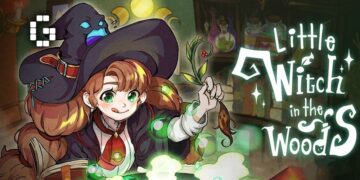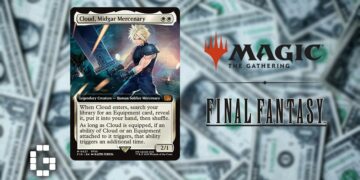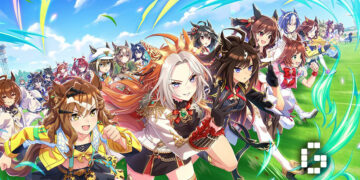This article on ‘How Baldur’s Gate 3 Exemplifies The Decadence Of The CRPG’ was available on 09/08/23 as part of the GamerBraves Newsletter. Sign up for free to gain access to more articles about news and trends in the gaming industry and community.
Original Article: Game genres are an interesting concept, because more often than not they’re telling of the environment that created them more than anything else. Just like how JRPGs are a symbol of the West’s tendency to label anything Japanese as weird, so to does the CRPG paint the image of chunky PCs and pen-and-paper RPGs.
With Baldur’s Gate 3 launching this week to meteoric success, I figured it’d be a good time to talk about the CRPG. They’re an absolute white elephant in terms of genres, yet have it in them to be some of the best gaming experiences you’ll ever have.
Tabletop Roots

So the most defining trait of the CRPG is often enough their ruleset. In essence, a CRPG will usually feature gameplay based on the ruleset of tabletop RPGs. In Baldur’s Gate 3’s case, it’s literally operating on D&D’s 5E rules. Anyone familiar with the games would recognize it, as you sort through spell slots, actions, bonus actions, reactions etc.
That being said, not every CRPG has to be lifted directly from a tabletop- Divinity Original Sin very much feels like a tabletop inspired by D&D, but isn’t directly lifted from it. Similarly, Disco Elysium operates on similar rules- dice checks aplenty, but nary a Player’s Manual in sight.
Instead, a good CRPG should have you feeling like you’re playing a tabletop. This doesn’t always have to mean isometric perspective or the like, rather, there needs to be system-based complexity akin to your tomes of Handbooks and Codices.
Skills (To Pay Bills)
How good your CRPG is absolutely hinges on the kinds of skills you have access to. Unlike a shooter where all your skills will revolve around shooting, reloading, taking damage or healing damage, a CRPG’s tabletop roots mean that you have to accommodate players who are used to being able to do anything.

It’s very hard to not bring up Fallout: New Vegas when discussing CRPG skills. Even though the game’s in first person it does these excellently through the perks. Female Couriers with the Black Widow perk can choose to seduce a key target in the game’s plot, skipping an entire chunk of having to chase him after he leaves town with your target. Similarly, I charmed my way out of doing fetch quests to get some rocket parts from another NPC thanks to the Lady Killer perk.

But how do you make these skills feel good? The secret is hiding content. It’s part of the reason I personally believe CRPGs have become more niche- their quality is driven by how big the content you can miss is, and how close it is to the quality of the content you got.
In Divinity: Original Sin, an early quest sees you trying to solve the murder of a man in town. If played by-the-book, you’d normally just be interviewing the people in town until you find a killer. If you just so happen to choose talking to animals as a passive skill though, you gain a new way to solve the quest- by interviewing the deceased’s dog, and having him sniff underwear to find his master’s latest conquest.

From a purely business perspective it doesn’t make sense- why develop a whole separate quest progression just for players who chose a niche non-combat skill? But this kind of fancy is what drives the CRPG genre.
Failure Is Good, Actually

Of course, the other defining trait of the CRPG is skill checks. As you level up your character’s different stats, there need to be moments where you tell the game you want to do something, and the game checks your character for the ability to do that (usually via a dice roll against your stats). This isn’t like Dark Souls’ minimum Strength to use a Greatsword- this is more akin to you having enough Perception to see a tripwire, or enough Charisma to talk down an angry guard.
This does create a new problem, though. What if you fail? For a CRPG, you cannot have it simply be the wall to progress. Considering how builds are an important part of player expression, at no point should a CRPG force you to have 20 Strength or 13 Charisma. So instead, a good CRPG will have to give you good alternatives for failure, too.
Just take a look at Disco Elysium- early in the game, your Detective is antagonized by a little girl as you try to solve a murder. Play your cards right and you can get your partner to loan you his gun- and point it straight at the child. In this case, not only is there an outcome for failing to shoot the girl, it’s actually the correct choice, since in the fictional world of Revachol you’re met with consequences when a cop shoots a child, and get a game over screen.
Disco in particular is carried by its strong writing- even when you fail the game’s myriad of skill checks, the game’s narrator makes sure that the conversation flow feels appropriate. Unfortunately, “appropriate” means something different when you’re playing as a detective recovering from a massive bender, and that means your failure states aren’t always the most savory.
The trick is to keep the game in a permanent state of “Yes, and”. Players should feel stupid about failing a check, yes, but never so much that they want to quit the game. Simultaneously, you should reserve game over states for only severe failures- make it a funny one-off rather than a permanent threat to worry about.
The Struggle of CRPGs

Part of the reason CRPGs aren’t as common now is that they’re antithesis to everything we know about triple-A gaming. The sheer amount of dialogue options that define the CRPG haunts every casting director’s nightmares, but at the same time a good vocal performance a la Disco Elysium can really be the hook that draws players in.
Similarly, you also have the content argument. The ideal CRPG should feel like a different game on every run you’re opting into- a Druid in Baldur’s Gate with low Intelligence should not be getting the same dialogue options as a Tiefling Fighter, especially when one of the earliest areas in the game deals with racism towards Tieflings. At the same time, this isn’t content you can just turn on like a switch- these decisions are triggered during character creation, literally tens of hours before some forks appear.

The idea of “Let’s spend resources making content only 1/3 of players will see” is a horrifying thing to suggest to a numbers-cruncher. Yet it’s this kind of decadence that makes the CRPG thrive.
Of course, this isn’t the pie-in-the-sky of “Why not just make the game good”. For most CRPGs, they pay these costs in actual gameplay. Disco Elysium and Baldur’s Gate are all point-and-clicks, where you don’t have to worry about things like player reaction time and the like. New Vegas has pretty atrocious gunplay- many people who bounce off the game do so because they expect a first person shooter. Instead, the depth of the systems covers for these such that you don’t care that titles like New Vegas don’t have a running slide, since you can just stop time and target parts with VATs.
A Loving Niche

All this is to say that the CRPG is a great example of a niche genre. They’re expensive, don’t make mass-marketing sense and will probably turn a lot of people off- but the people who appreciate them absolutely adore them. This kind of organic appreciation is how CRPGs have always grown, just like the tabletops that inspired them would. Baldur’s Gate 3 doesn’t need a Superbowl ad to get its current Steam numbers- it’s instead carried by the amount of content creators who just love CRPGs, as well as the virality of tender, passionate Bear love.











![[EXCLUSIVE] Creative Masterminds from Gearbox Software Reveal What Makes Borderlands 4 Worth the Wait](https://cdn.gamerbraves.com/2025/07/Borderlands-4-at-Bilibili-World-2025_Interview_FI-360x180.jpg)




![[ASIA EXCLUSIVE] Bringing Back a Classic: Inside the Making of FINAL FANTASY TACTICS – The Ivalice Chronicles](https://cdn.gamerbraves.com/2025/06/FFT-Ivalice-Chronicles_Interview_FI2-360x180.jpg)













